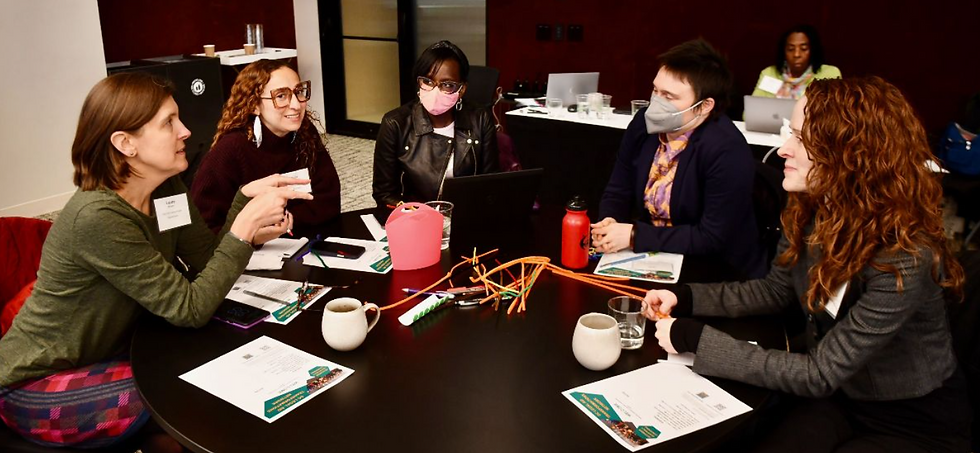Connectivity Leads to Impact
- Dec 20, 2023
- 3 min read

In my first CEO letter for 2023, I talked about wellbeing. In my last post for the year, I want to focus on connectivity, alignment, action, and impact.
When the DC Bar Foundation launched the DC Legal Aid Transformations Network in June 2021 and began working with the Interaction Institute for Social Change, IISC helped to shape our conversations around the connectivity, alignment, and action trifecta, which means that by connecting people, the resulting relationships and trust leads to significant value creation. The impact is observed in improved efficiency and coordinated action.

Particularly since the adoption of our strategic framework in 2019, the DC Bar Foundation has endeavored to make an impact by connecting with and serving as a connector for different sectors. The importance of connection became particularly apparent after the feedback we received during the DC Legal Aid Transformations Network (DC LATN) Convenings. There is no question that we are stronger when we work together, and the Foundation will continue to forge and deepen relationships with stakeholders outside the legal aid sector.
The depth and breadth of our work are far too significant to be done in silos; it requires the efforts of the legal aid community and all other stakeholders who have a mission and goal of helping DC residents from vulnerable communities, including those in academia, government, philanthropy, media arts, health and social services, and business.
We have increased these collaborative efforts, providing opportunities for different groups to meet to discuss how they can strengthen relationships and work together to meet the needs of DC’s most vulnerable populations. In recent months, the DC Bar Foundation has been able to spur connectivity and alignment by:
Hosting a social services fireside chat at the end of August. The fireside chat was an opportunity for the DC Bar Foundation to hear from social services providers about their needs and what it would look like for them to expand collaboration with the Foundation and, more broadly, the DC legal aid community. During this conversation, we realized that there was an opportunity for each group (legal and social services) to understand better what the other does and how they can help support each other in their work. These conversations lead to relationships that lead to more efficient ways to serve DC residents.
Hosting an executive directors' meeting at the end of November. This first-time event allowed leadership from legal aid and social services organizations to continue to strengthen relationships with each other. Hosted at the DCBF office, we had more than 30 registrants, with 11 from social services organizations. We kicked off this group meeting with executive directors because we believe that if leaders work together, the collaboration will filter throughout the organization and become a customary practice between both sectors. The goal is for this group to meet quarterly, and they are in the process of identifying the individuals who will lead this effort in the future.
Inviting more social services providers to the DC Legal Aid Transformations Network. After the September DC LATN Convening, we began to focus more intentionally on outreach to social services providers to the Network, several of whom now serve on the new Network Action Team, which will be responsible for managing and directing the priorities of the Network.
The Foundation is committed to continuing our work as a connector and convener. In the new year, we will continue to hold space for mission-driven organizations, both within and outside of legal aid, that want to work together. I look forward to creating more partnership opportunities with these stakeholders, always with the intention of centering those we hope to serve in our work.




Comments